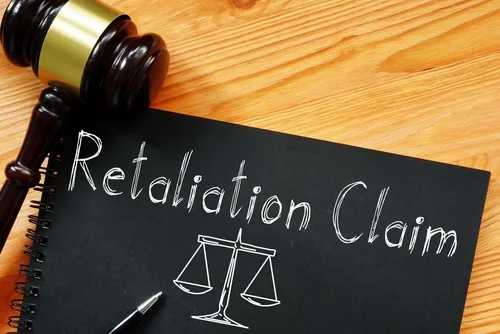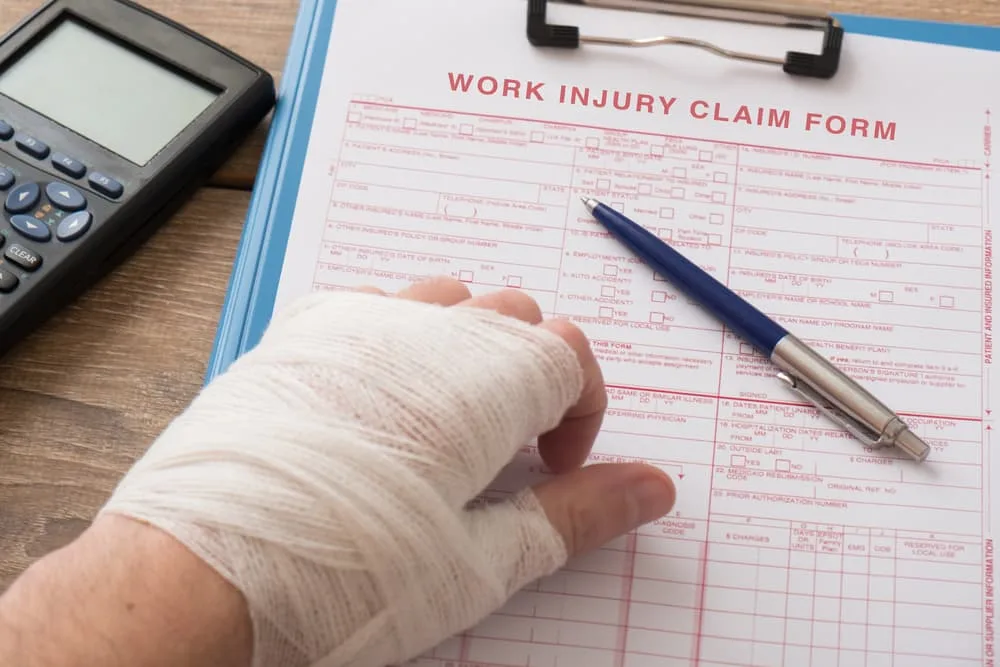What tactics do employers use to make life miserable for injured workers? A man who suffered a severe shoulder injury reminded us of this frequent question. He described what happened when he did not immediately notify his employer of the injury, simply because he thought it would go away.
However, when his pain persisted for 7 days, he realized that something was seriously wrong. He reported the injury to his employer, who promptly fired him, claiming that his failure to report the injury immediately was a “violation of safety rules.”
Their employer’s action was, of course, completely illegal. As every good Philadelphia work injury lawyer will tell you, under Pennsylvania law, you have the right to report a work injury for up to 120 days from the date of injury. Furthermore, you have rights under the Family and Medical Leave Act.
Finally, because employers do not have the right to retaliate against an employee for exercising rights under the Workers’ Compensation Act, such an obnoxious firing would almost certainly give rise to a lawsuit against the employer for discrimination. The problem here, however, is that this isn’t an isolated case of employer harassment.
Taking money from your pocket
Under Pennsylvania Law, an employer is entitled to a credit equal to 50% of any old age benefits against workers’ compensation benefits the employee receives. If the employee was collecting old age benefits before the work injury occurred, the employer is not entitled to a credit.

For example, if an employee receives $2,200.00 per month in workers’ compensation benefits and $1,100.00 per month in social security retirement benefits (old age benefits), the insurance company would be obligated to pay only $1,650.00 monthly. ($2,200-$1,100/2=$1,650.00)
In Caputo v. WCAB, an injured worker challenged this position, arguing that it was a violation of the Pennsylvania Constitution. The Court rejected the employee’s challenge, sending a clear message that it’s acceptable for employers to reduce payments of workers’ compensation benefits by 50% of the social security retirement benefits the injured worker receives.
U.S. Supreme Court upholds employers’ use of class action waivers to deny employee remedies for employers’ illegal conduct
In a major blow to the rights of employees under the National Labor Relations Act to join forces in “mutual aid and protection,” the Supreme Court ruled 5 to 4 that employers could bar employees from participating in class actions against employers and force them to arbitrate disputes.
Class actions, in which groups of similarly aggrieved individuals file suit, are among the only effective ways for employees to obtain redress for grievances against employers who violate minimum wage or overtime pay rights or violate laws against discrimination.
Employers use arbitration agreements that contain class action waivers to force employees to file for arbitration individually. Frequently the damages recoverable by an employee are insufficient to justify the filing of an individual legal action. Furthermore, where employees are the victims of discrimination, they are often reluctant to take legal action unless they are part of a group for fear of being ostracized by co-employees.
Among the cases consolidated in the decision is one in which employees for Murphy Oil sued the company for back pay for “off the clock” work. The employees had agreed to arbitrate employment claims individually when they accepted the jobs, but the National Labor Relations Board argued that class action waivers interfered with the right of employees to join to enforce their rights.
Former President Trump took the extremely rare step of reversing the position of a previous administration and filed a new brief in support of the employers and Justice Gorsuch wrote the decision for the majority.
Is the Supreme Court against the working class?
Justice Gorsuch’s widely condemned decision in Epic Systems v. Morris may prove to be the harbinger of a new era in which the United States Supreme Court takes an extreme anti-labor stance.
As noted in a previous section, in the 5-4 decision, Justice Gorsuch ruled that an employer may prohibit employees from joining together in class actions against the employer. The decision also held that employers may require employees to take any dispute to arbitration in which “neutral” arbitrators will rule on the merits of an employee’s claim.
Employers who force employees to accept these conditions can get away with stealing small amounts of wages from all their employees because no individual employee would be willing to pay attorney’s fees and costs that exceed their recovery. In her dissent, Justice Ginsberg noted that employees at one of the companies would likely have to spend $200,000.00 to recover only $1,867.02 in overtime pay and an equivalent amount in liquidated damages.
Justice Gorsuch’s decision is predicated upon the absurd notion that there is equal bargaining power between employers and employees. The reality is quite different. In the case of Epic Systems, employees were told via e-mail that they had to agree to arbitrate any disputes with the employer and give up the right to pursue class actions. Anyone who continued to work at the company after receiving the e-mail was deemed to have accepted the agreement.
Approximately 23 percent of all non-unionized employees are subject to class action waivers and mandatory arbitration agreements. That is likely to change, and not for the better. President Trump’s most ardent supporters will suffer because of this ruling.
Has your employer terminated your employment because you filed a workers’ compensation claim?

Under Pennsylvania law, injured workers whose employment has been terminated for filing a workers’ compensation claim, may pursue a wrongful discharge suit against their employers. [Shick v. Shirey, 552 Pa. 590, 716 A.2d 1231 (Pa. 1998)]
Union-represented employees, however, cannot pursue a wrongful discharge lawsuit if the collective bargaining agreement protects the employee from discharge without proper cause. [Phillips v. Babcock and Wilcox, 349 Pa. Super 351, 503 A.2d 36 (1986), appeal denied, 514 Pa. 618, 521 A.2d 933 (1987); Harper v. American Red Cross Blood Services, 153 F.Supp.2d 719 (E.D. Pa. 2001)]
The commonwealth or its political subdivisions are not subject to such a wrongful discharge claim because it does not fall within the exceptions to sovereign immunity outlined in 42 Pa. C. S. § 8522 (b). Similarly, local agencies are immune from such lawsuits under the Pennsylvania Political Sub-Division Tort Claims Act, which does not recognize a wrongful discharge lawsuit. [42 Pa. C.S.A. § 8542. Kuzel v. Krause, 658 A.2d 856 (Pa. Cmwlth. 1995); Haiden v. Greene County Career and Technology Center, 2009 Westlaw 2341922 (W.D. Pa. 2009)]
Which Philadelphia work injury lawyer near me is the most reliable?
If you have been wrongly discharged in the aftermath of a workplace injury and considering actions against employers that are legally available to you, turn to The Liberty Bell Workers’ Compensation for aid.
We’ve been advocating for the rights of injured workers for well over two decades, securing more than $1 billion in benefits and winning the reputation of integrity and honesty among peers and clients alike. Don’t be tempted to hire cheap legal mill lawyers who barely know where the workers’ comp system comes from. Give us a call today or visit our offices at Temple University Center City Campus, and see for yourself the difference a highly professional team can make!








